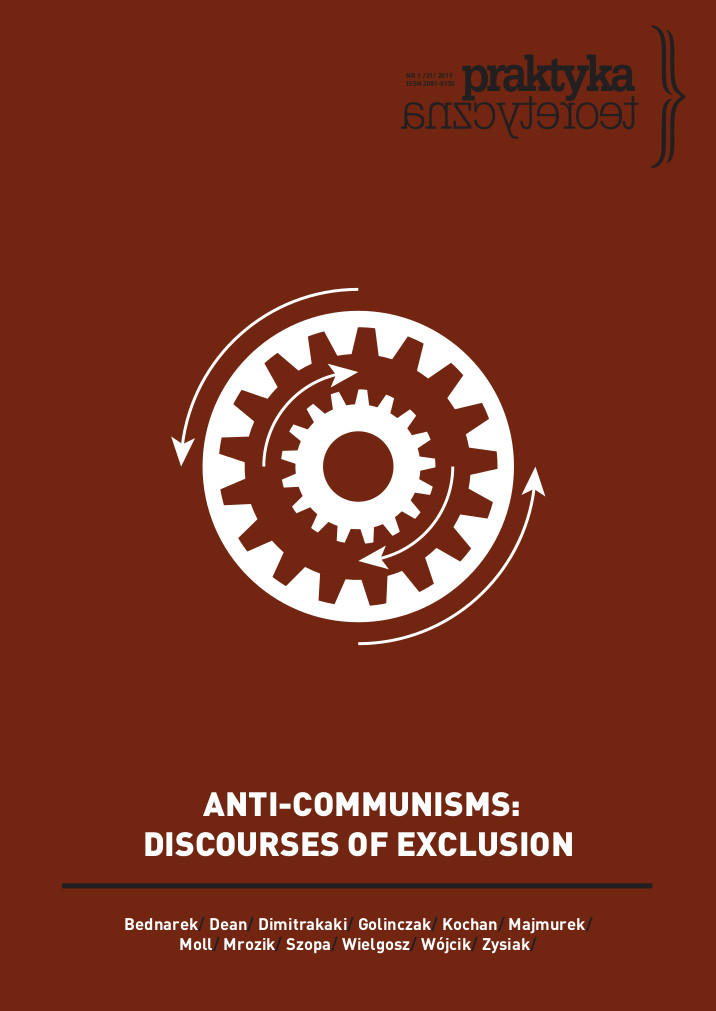COMMUNISM AS A GENERAL CRIME: APPLYING HEGEMONY ANALYSIS TO ANTI-COMMUNIST DISCOURSE IN CONTEMPORARY POLAND
COMMUNISM AS A GENERAL CRIME: APPLYING HEGEMONY ANALYSIS TO ANTI-COMMUNIST DISCOURSE IN CONTEMPORARY POLAND
Author(s): MICHALINA GOLINCZAKSubject(s): Political history, Government/Political systems, Politics and society, Evaluation research, History of Communism, Post-Communist Transformation
Published by: Uniwersytet Adama Mickiewicza
Keywords: anti-communism; discourse; hegemony (analysis); Laclau; Mouffe; Nonhoff;
Summary/Abstract: With the collapse of state socialism in Eastern Europe, anti-communism has gained new momentum. In Poland, it has become a hegemonic discourse that manifests itself in (and reproduces itself through) legislation, public history, politics, and education, as well as pop culture. However, the discursive dominance of anti-communism has hardly been researched systematically. In this article, I aim to apply hegemony analysis – as developed by Martin Nonhoff and based on Ernesto Laclau and Chantal Mouffe’s theory of discourse – to anti-communism in contemporary Poland. I give an overview of the methodology, discuss concrete analytical tools and their possible application and argue that, as a result of an antagonistic division of discursive space, communism becomes a “general crime”, an obstacle that prevents Polish society from finding “ultimate reconciliation with itself” and reaching its (mythical) fullness.
Journal: Praktyka teoretyczna
- Issue Year: 2019
- Issue No: 31
- Page Range: 94-117
- Page Count: 24
- Language: English

